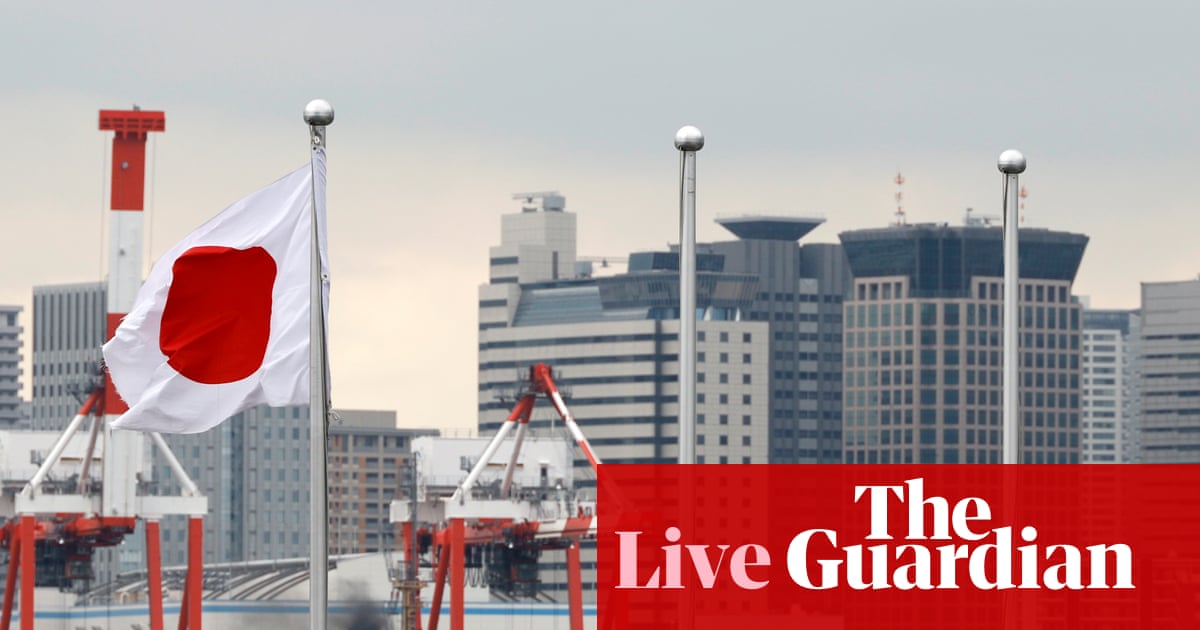Key events
Japan’s tourism shares slump as diplomatic rift with China deepens
As well as news that its economy shrank in the last quarter, Japan has also been hit by an escalating dispute with China over Taiwan.
Shares in Japanese tourism and retail companies have fallen today, after China advised its citizens to avoid travelling to Japan.
This move by Beijing escalated a diplomatic feud sparked by comments from Tokyo’s new prime minister, Sanae Takaichi, on the possibility of deploying forces in the event of a hypothetical Chinese attack on Taiwan.
This triggered a wave of selling across Japanese leisure stocks.
Shares in Oriental Land, which operates Tokyo Disneyland, have fallen by 5.7% today. Department store chain Isetan Mitsukoshi, which makes substantial sales to Chinese visitors, has tumbled by 11.3%.
Travel stocks were hit too, with Japan Airlines falling 3.75%.
Masahiko Loo, a senior fixed income strategist at State Street Investment Management in Tokyo, explains:
“The China–Japan dispute over Taiwan and Beijing’s advisory discouraging travel to Japan introduces near-term headwinds for consumer-facing sectors.
“Chinese visitors account for roughly 25% of Japan’s inbound traffic, making department stores, luxury retail, and hospitality particularly vulnerable.”
Introduction: Japan’s economy contracts as exports are hit by US tariffs
Good morning, and welcome to our rolling coverage of business, the financial markets and the world economy.
Donald Trump’s trade wars continue to bruise the global economy, dampening demand and weakening trade links.
Japan is the latest country to show the effects – its economy has shrunk for the first time in six quarters.
Japanese GDP fell by 0.4% in the July-September quarter, new official data shows, as its manufacturers’ exports were hit by the tariffs imposed by the US this year.
Exports were a key driver of the contraction; they fell by 1.2% compared with the April-June quarter, and were 4.5% lower than a year ago.
Back in April, Trump threatened Japan with a new 25% tariff on its goods at the US border, which was cut to 15% in July when the two countries reached a trade deal.
Private demand also fell, by 0.3% quarter-on-quarter.
On an annualised basis, Japan’s real gross domestic product shrank by 1.8% on an annualized basis in the three months through September. Although that’s better than the 2.4% fall which economists had expected, it could bolster new prime minister Sanae Takaichi’s case to compile an ambitious stimulus programme.
Yoshimasa Maruyama, chief market economist at SMBC Nikko Securities says (via Bloomberg):
“Japan’s economy was solid in the first half of this year and today’s GDP showed that momentum is halted temporarily.
I expect Japan’s economy to be back on a moderate recovery trend going forward.”
The White House has belatedly woken up to the impact of tariffs on Americans (who pay the levies) too – late last week, Trump lowered the tariffs on food imports, including beef, tomatoes, coffee and bananas, amid growing concerns about rising costs.
